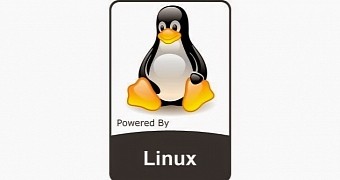After informing users about the release of the Linux 4.5.2 kernel, Greg Kroah-Hartman published details about the availability of the eighth maintenance build in the stable, long-term supported Linux 4.4 kernel series.
Just by looking at the appended shortlog, we can notice that the Linux kernel 4.4.8 LTS point release is a pretty beefy one, bringing changes to 153 files, with 1334 insertions and 594 deletions, and the diff from the previous maintenance version shows us that there's a little bit of everything in this new update.
For example, there are various improvements to the ARM64 (AArch64), MIPS, PA-RISC, PowerPC (PPC), and x86 hardware architectures, several fixes to the Btrfs, EXT4, NFS, and OverlayFS filesystems, a few enhancements to the sound stack, as well as minor crypo, mm, and core kernel changes.
"I'm announcing the release of the 4.4.8 kernel. All users of the 4.4 kernel series must upgrade," said Greg Kroah-Hartman in the release announcement. "The updated 4.4.y git tree can be browsed at the normal kernel.org git web browser: http://git.kernel.org/?p=linux/kernel/git/stable/linux-stable.git;a=summary."
Numerous drivers have been updated
As with any new point release of a Linux kernel branch, there are numerous updated drivers, and it looks like Linux kernel 4.4.8 LTS does not disappoint. Among the updated drivers, we can mention things like AMDGPU, Radeon, HID, hwmon, iiO, IOMMU, MMC, NVDIMM, PINCTRL, PCMCIA, SCSI, USB, Virtio, and Xen.
Additionally, there are multiple updated networking drivers, in particular for things like Ethernet, Bonding, MacVTap, TUN, PPP, Virtual Routing and Forwarding (VRF), Virtual Extensible LAN (VXLAN), USB, and Wireless. The sources of Linux kernel 4.4.8 LTS are available for download right now via our website or from kernel.org.
If you're running a GNU/Linux operating system powered by a kernel from the Linux 4.4 LTS series, please update to the 4.4.8 version as soon it hits the main software repositories. OS vendors are urged to download the sources (download options above) and start compiling/optimizing the kernel for their systems.

 14 DAY TRIAL //
14 DAY TRIAL //